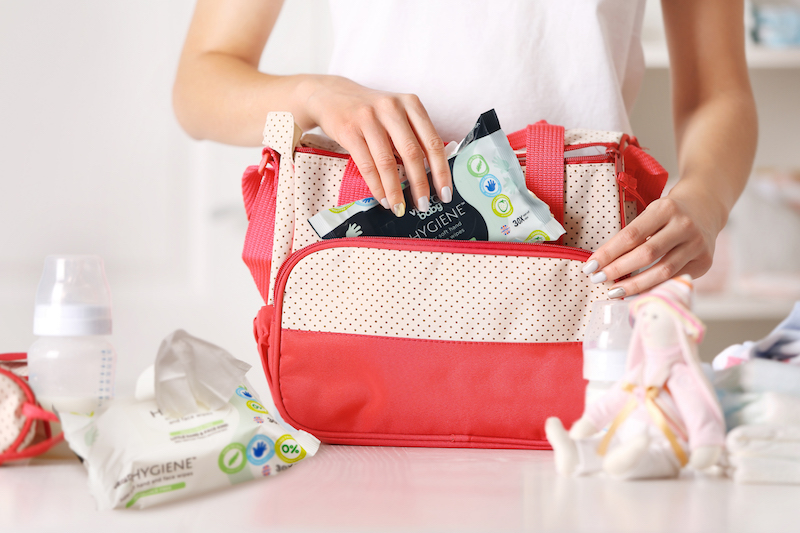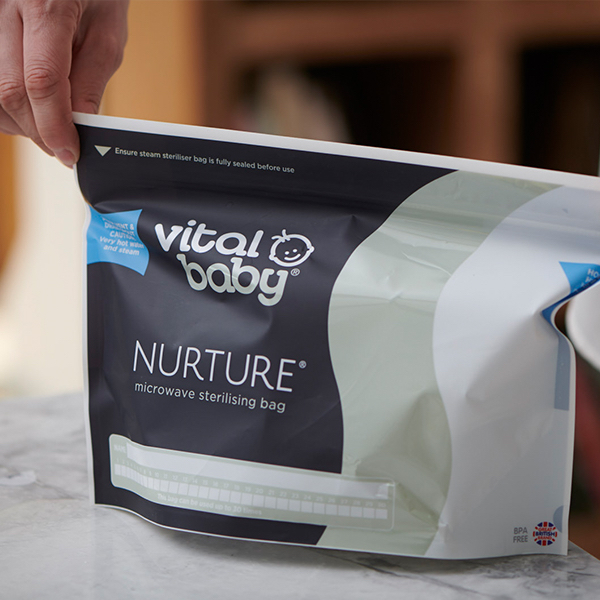As a new Mother, nothing will be more important to you than the well-being of your newborn infant, as your instinct ignites the powerful force of motherhood within you to protect and nurture your baby.
A newborn requires exclusive breastfeeding for the first six months of its life for optimal growth and development and continued breastfeeding, combined with solid foods, for two years or longer. Working mothers returning to jobs and careers following their maternity leave period will face the challenges of juggling work and home responsibilities.
Unfortunately, according to a 2021 survey, the number one reason why new mothers stop breastfeeding their newborn infants is due to having to return to work.
While South Africa has legal rights in place for breastfeeding mothers in the workplace, there are challenges new mothers may face in trying to exercise these rights. According to a survey done in 2021 by the South African Breastfeeding Association, only 20% of companies have dedicated breastfeeding rooms in the workplace.
According to South Africa’s Basic Conditions of Employment Act, the legal rights of breastfeeding Mothers in the workplace in South Africa are:
- Breastfeeding mothers are legally entitled to two 30-minute breaks per day for breastfeeding or expressing milk if their infants are younger than 6 months.
- Breastfeeding breaks are paid time.
- Employers should provide a clean and private area for breastfeeding or expressing milk, as well as a facility for storing the milk.
- Breastfeeding mothers should not be discriminated against or harassed for choosing to breastfeed or express milk at work.
However, the challenges that breastfeeding mothers may face in trying to exercise these rights are:
- The Code of Good Practice does not specify whether the breastfeeding breaks are in addition to or part of the normal breaks, such as lunch or tea breaks.
- The Code of Good Practice does not require employers to give breastfeeding mothers a suitable space for expressing or storing their milk, nor does it specify the minimum standards for such a space.
- The Code does not impose any penalties for employers who fail to comply with its provisions, nor does it provide any remedies for breastfeeding mothers who are denied their rights.
According to BioMedCentral, the survey conducted in March 2021 involved 1000 working mothers across South Africa who had given birth in the past two years. It found that only 20% of companies have dedicated breastfeeding rooms for working mothers, and 40% of mothers had to use public spaces such as toilets, storerooms, or their cars to breastfeed or express milk.
The survey also revealed that 60% of mothers felt unsupported by their employers and colleagues when it came to breastfeeding, and that 30% of mothers had stopped breastfeeding before six months due to work-related challenges, highlighting the need for more awareness and action from employers, policymakers, and society to create a more enabling environment for breastfeeding mothers in the workplace.
Some employers may be unaware of or unwilling to accommodate the needs of breastfeeding mothers and may create a hostile or unsupportive work environment for them: “My employer did not provide any space for me to pump, so I had to use the bathroom. It was dirty, noisy, and uncomfortable. I felt like I had no privacy or dignity. I often got mastitis and low milk supply. I hated every minute of it,” says Maria, who is a cashier.
Some co-workers may be ignorant or insensitive to the benefits and challenges of breastfeeding and may make negative comments or jokes about it. Luckily this was not the case for Fatima, a machine operator in a factory where there are mostly men. “They were very sympathetic to my breastfeeding. They helped me find a quiet corner where I could pump, and they covered for me when I took breaks. They never made any jokes or remarks. They treated me like a normal coworker.”
Certain breastfeeding mothers may feel embarrassed or uncomfortable about breastfeeding or expressing milk at work and may face social stigma or pressure from their workplace, families or communities. Ashley, a nurse, had to quit her job because her employer refused to accommodate her breastfeeding needs. “They said it was too disruptive and costly. They threatened to fire me if I kept asking for breaks and space. I felt discriminated against and harassed. I wish I had more legal protection.”
Marketing manager Jessica had a more understanding employer. “I was lucky enough to have a supportive boss who let me use his office to pump whenever I needed. He also made sure that no one disturbed me or made any rude comments. He even bought me a mini fridge to store my milk in. I felt valued and respected as a working mother.”
At Vital Baby we care about parenting and bring you tips on how to navigate your work-life balance and make breastfeeding work for you so you can give your child the best start in life, wherever you may find yourself. It is important to: –
Know your rights. Be prepared to negotiate with your employer for more flexible work arrangements, such as flexible hours, part-time work or extended maternity leave.
Plan ahead. Before you return to work, discuss your needs with your employer and colleagues about your breastfeeding needs. Discuss a suitable space for breastfeeding or expressing milk at work. If it is impossible, express extra milk and store it in the freezer so your baby can still benefit. Electric and manual breast pumps are small and non-disruptive. The Vital Baby Flexcone Electric Breast Pump Gift Set R2199.99 makes the perfect maternity gift set from the office and includes everything a new mother needs to maintain breastfeeding; it includes the Vital Baby electric breast pump, a breast like feeding bottle, slow flow teat, silicone breast cup, a manual conversion kit so it works during load shedding, bottle stand, charge cable and plug adapter, six ultra comfort breast pads, 30 easy-pour breastmilk storage bags and 2 protect and care silicone nipple shields. The Vital Baby Manual Breast Pump Gift Set R825.90 offers a more affordable but still priceless, option for new mothers.
 Maintain your milk supply. You need to breastfeed or express milk regularly, at least every three hours, to keep your milk production up. Use a high-quality pump and store your milk in a clean pouch in the fridge or cooler bag. The Vital Baby Easy Pour Breastmilk Storage Bags R221.20 are neat, affordable and easy to use. Label them with the date and time of expression and keep them stored in the freezer. Breastfeed your baby before and after work and if possible, during your breaks.
Maintain your milk supply. You need to breastfeed or express milk regularly, at least every three hours, to keep your milk production up. Use a high-quality pump and store your milk in a clean pouch in the fridge or cooler bag. The Vital Baby Easy Pour Breastmilk Storage Bags R221.20 are neat, affordable and easy to use. Label them with the date and time of expression and keep them stored in the freezer. Breastfeed your baby before and after work and if possible, during your breaks.
“My milk came down in crazy amounts after just a few days of using my Vital Baby pump! It’s comfy (as much as it could be!) and the different levels help me adapt to how I’m feeling, which is amazing!” says Sarah.
Breast pumping at the workplace can be a challenging but rewarding experience for new moms who want to continue providing breast milk for their babies. Here are some real-life hacks and tips from other moms who have had to breast pump at the workplace:
# Pack your pumping bag the night before. Include your pump, storage bags, ice packs, wipes, bra pads and a cover. Include a snack, water, a book or podcast or a photo or videos of your baby to help your milk release and stay hydrated while pumping.

# Create a pumping schedule and stick to it. If you don’t have a dedicated lactation room or clean, secure and comfortable space, use a sign, curtain or screen for privacy and to avoid interruptions.
# Increase your milk output and letdown reflex by massaging your breasts, applying warm compresses, listening to music, and smelling something that reminds you of your baby. Your breasts may leak during the day, especially around feeding or pumping time, so pack in Vital Baby Ultra Comfort Breas Pads R29.80-R140.90 to protect and keep you dry.

#Store and transport your milk safely. Label it with the date and time and keep it cool until you can store it in the fridge or freezer.
# Before returning to work, familiarise your baby with feeding from a bottle, so a caretaker can give your breast milk feeds while you are at work. The Vital Baby Newborn Bottle Feeding Gift Set R1044.99 includes everything you need to nurture and nourish your child, even when you can’t be there.
# Clean your pump parts after each use to prevent contamination and infection. The Vital Baby Hygiene Pro Steam Steriliser R3299.00 protects your baby’s developing immune system by safely killing 99.9% of bacteria and viruses, and mould. It sterilises (chemical free) and dries contents for you. Items stay sterile for up to 24 hours.
Hygiene is a top priority when it comes to feeding infants, and you will want to keep all breast- pumping equipment and feeding bottles washed and sterilised. Offering the ultimate workplace convenience, the Vital Baby Microwave Sterilising Bags R166.99 feature new and improved design technology, making these sterilising bags perfect for use in less spacious kitchens and when you’re away from home.

Most importantly, take care of yourself. Breastfeeding can be demanding, especially if you have just returned to work and are juggling your new motherhood responsibilities with work pressures. Ensure you eat well, drink plenty of water, get enough rest and manage your stress levels. If you feel you are not coping, it is vital that you reach out and seek support from your partner, family, friends, co-workers or medical professional.
Vital Baby supports every new Mother on their journey of caring for and nurturing their young infant and is here to assist and encourage each new Mother, whichever feeding choice you make.
- Silent Night? How to Handle Baby Sleep Disruptions During the Holidays - December 17, 2025
- Mental Health and the NICU Mom: The Silent Battle Behind the Glass - December 8, 2025
- Co-Sleeping, Cribs, or Sleep Training — What Works Best? - November 10, 2025





